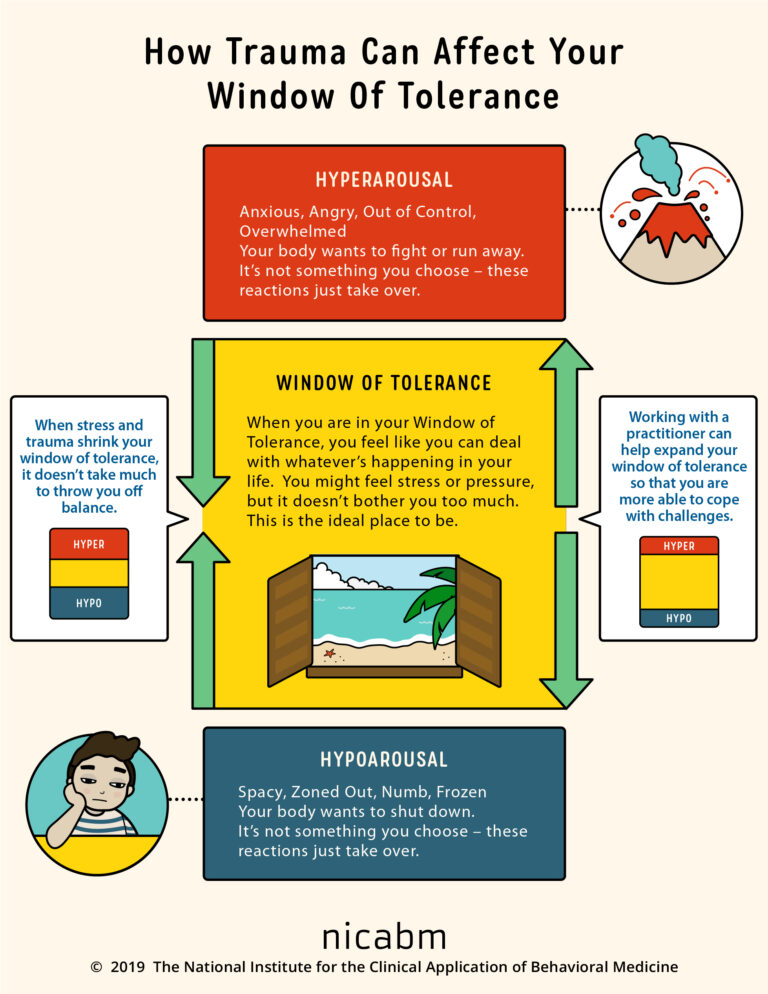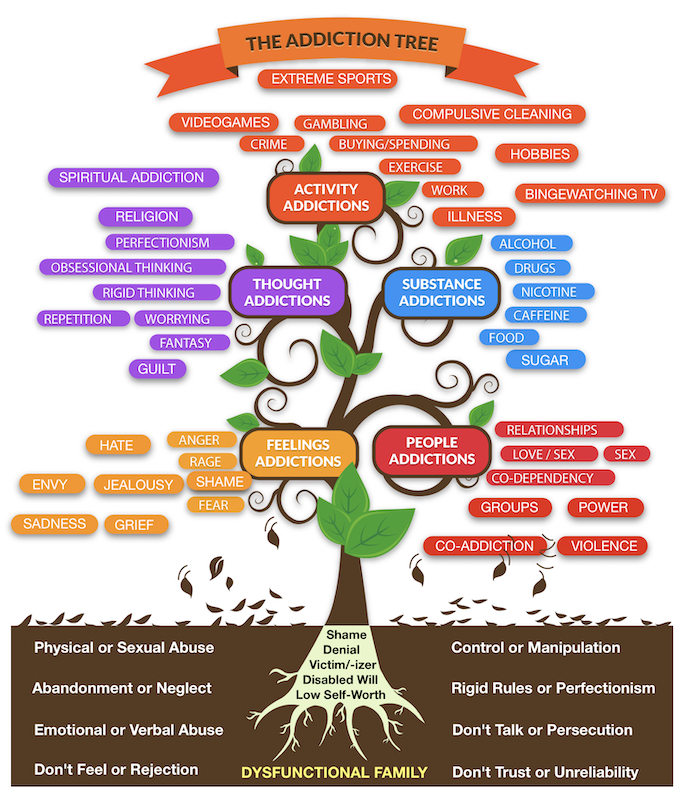I would like to start with Dr Daniel Sumrok interpretation that addictions shouldn’t be called “addictions”. It should be called “ritualized compulsive comfort seeking”. It’s a nice way to look at it, because addictions are not a pleasure-seeking behaviour it’s a survival strategy or coping mechanism. What our culture call addiction is a normal response to the adversity experienced in childhood. It is as a way to function or to feel safer in the world. All the substitute is to help the nervous system to cope with sensations and feelings by creating a false window of tolerance.
The root of seeking compulsive comfort is a self-regulation problem. When we don’t know how to regulate our aroused state we often turn to addictive behaviour. The impact of all traumatic events in childhood change’s your brain and sense of your-self. Your nervous system is altered and set up how to cope with an environment you lived in or event back then in your early childhood but it doesn’t know how to fit in the events in a present moment. Leaving you powerless and trapped in the past.

Part of that hopelessness is connected to the bodies loss of particular movements because they weren’t effective at the time of the trauma. For those who couldn’t run away, fight back or defend themselves, they instinctively stop executing that instinctive action because that choice is taken away in trauma. They feel like physically cannot defend and protect themselves, what does that do to self-worth? How does that translate?
Those who were affected by traumatic memories have not been able to perform the actions characteristic of the stage of triumph. These acts of triumph are the ability that you could fight back, and you could get away, you could cry for help.
Most people had to respond to abuse, especially childhood abuse, was through immobilizing defences because cry for help, fighting back, running away, none of that worked. So, the next part of defence is to freeze or to collapse and shutdown. Those are bodies instinctive responses. There was an urge for active defence but instead came an immobilizing defence. And because those instinctive active defences are instinctive, they don’t go away. They still remain as urges within the body, frozen in time.
The solution to change addictive behaviour is to address childhood trauma. The body needs to be in line with the thinking mind. In therapy, we want to help restore those acts of triumph. It doesn’t mean it is something wrong with you, that means, that taking actions could be made a situation worth, so not taking actions you minimized the harm that came to you. So much shame or blame goes with trauma and when you understand that you made the best possible choice no matter what defensive responses you used to fight, flight or freeze at that time. It’s just one part of you that seeks compulsive comfort not the whole of you, and that part helps to protect you by numbing all the sensations. It’s a flight part which comes to the rescue to get quick relief and to turn off the body signals.
To move your way out of trauma you need to start to be curious: how it starts to feel in the body? What sensations and feelings makes it as a trigger to come out for a flight part?
Be curios and notice of your sensations and remember: hearing the distorted beliefs as just thoughts, the intense emotions as just feelings, the impulsive actions as just actions

You are free to heal, to release all self-imposed limitations, you don’t have to stick to that particular life story. You can make a new life story because you have a choice now. By starting to be an observer of your overall being and behaviour. Let go of all the false labels and keep working on the connection with your higher self – an individualized unit of source sent to experience things and expand consciousness.

“No tree it is said, can grow to heaven unless its roots reach down to hell”
- C.G. Jung
When you find your part feeling powerless, defeated, abandoned or feel shame, anger, sadness, grief or your darkness mindfully investigate. The mindful brain is the observant brain; curiosity activates a front part of the brain called neocortex, allowing to feel feelings without a threat. Notice and say: “I feel this angry feeling inside of me, I feel this anxious feeling”.. etc. Notice what message comes with it, remember this is a memory, that believe is: what I believed as a child. When it’s a memory it’s not a reality. Feel but don’t push it away don’t run away from it it’s just a feeling which will go away when you create a space for it. While you’re fully feeling, begin to observe yourself from a balcony. When you’ve got the self-feeling and your consciousness observing, it creates a dual-awareness experience. It helps cultivate self-tolerance and self-acceptance. The verbal interpretations of what happened are only half the story of any experience, your body also has a story to tell. You might not have heard this story if you learned to disconnect, push away, or ignore it but you can learn to translate its language.
Our self-discovery process comes alive in a new way when we begin to understand not only the verbal story of who we are and what happened to us but also the story the body’s procedural learning has to tell.


9 thoughts on “What Causes Addictive Behaviour”
Everything is very open with a clear description of the challenges.
It was really informative. Your website is very helpful.
Thanks for sharing!
whoah this weblog is wonderful i love reading your articles.
Stay up the great work! You know, lots of people are looking round for
this information, you could help them greatly.
The article is really excellent. Every time I read it, I get information again.
The best article I’ve read in a long time….
Thanks , I have just been searching for information approximately this topic for ages and
yours is the best I have discovered till now. But, what about the
bottom line? Are you positive concerning the source?
Oh my goodness! Impressive article dude! Many thanks, However I am going through troubles
with your RSS. I don’t know why I am unable to subscribe to
it. Is there anybody else getting similar RSS issues?
Anybody who knows the solution can you kindly respond?
Thanks!!
Hello there! This article couldn’t be written much better!
Looking through this article reminds me of my previous roommate!
He always kept preaching about this. I’ll forward this post to him.
Pretty sure he will have a very good read. Thank you for sharing!
Its not my first time to visit this site, i am
browsing this site dailly and take nice information from here all the
time.
Very good article!
We will be linking to this particularly great
article on our site.
Keep up the good writing.
I don’t even know how I ended up here, but I thought this post was great.
I do not know who you are but definitely you are going to a famous blogger if you aren’t already
Cheers!